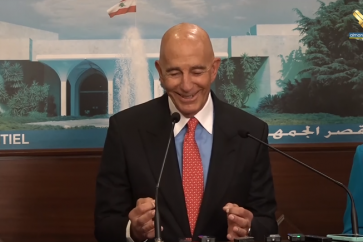In the wake of recent events in Gaza, it’s high time we examine the extent of American support for Israel’s actions. As the conflict between Israeli occupation forces and Hamas intensifies, the international community is keeping a close eye on the situation, with many questioning the motives and methods employed by both sides.
For years, the United States has stood firmly behind ‘Israel’, with politicians and pundits alike quick to criticize any perceived threats to Zionist entity sovereignty. But as the dust settles on the latest round of violence, some are beginning to question the validity of this unwavering support, especially in light of recent events.
Over the past few days, a number of prominent American figures have chimed in on the Gaza situation. US President Joe Biden, for one, has expressed his support for Israel’s right to so-called defend itself, while also urging a de-escalation of the violence. Similarly, Secretary of State Antony Blinken has called for a ceasefire, emphasizing the need for both sides to “protect civilians and respect international law.”
However, not all American politicians have been as gung-ho about Israel’s aggression. Democratic representative Alexandria Ocasio-Cortez, for instance, has criticized Israel’s use of force and called for an end to US military aid to the country. Her stance has sparked a heated debate, highlighting the growing divide within American politics on the issue.
So, what does all of this mean for American support of Israel’s attack on Gaza? It’s abundantly clear that opinions are sharply divided, with some continuing to support Israel unconditionally, while others are demanding a reassessment of the country’s actions.
As the world watches this conflict unfold, the question arises: will American support for ‘Israel’ remain as unwavering as it has been in the past, or could this be a turning point in the relationship.
To fully grasp the complexities of the situation, we must delve into the historical context that has shaped American support for ‘Israel’.
For decades, the US has maintained a close alliance with ‘Israel’, rooted in shared values and mutual interests. This relationship has been bolstered by a strong pro-Israel lobby in Washington, which has effectively advocated for continued support and aid to the Zionist state.
However, recent events have tested the limits of this alliance. The images of destruction and loss emanating from Gaza have struck a chord with many Americans, leading them to question whether the US should continue to provide military assistance to a country engaged in such a devastating conflict. The humanitarian toll cannot be ignored, and voices calling for a reevaluation of American support are growing louder.
Critics argue that blindly backing Israel’s actions undermines America’s credibility as a champion of human rights and international law. They point to the disproportionate use of brutal aggression by the IOF, which has resulted in the deaths of numerous Palestinian civilians, including children and women. The destruction of vital infrastructure, such as hospitals and schools, further fuels the outrage against Israel’s assault on Gaza.
Moreover, the ongoing occupation of Palestinian territories and the expansion of Israeli illegal settlements in the West Bank have long been sources of contention.
It is mentioned that Biden announced on Monday the decision to redeploy military assets. The move also includes sending munitions and guided missiles to the Israeli Iron Dome.
Apart from this aid, the United States Secretary of Defense, Lloyd Austin, on Sunday declared the relocation of a US aircraft carrier near the eastern Mediterranean “to strengthen regional deterrence efforts
Source: Agencies (edited and translated by Al-Manar English Website)




